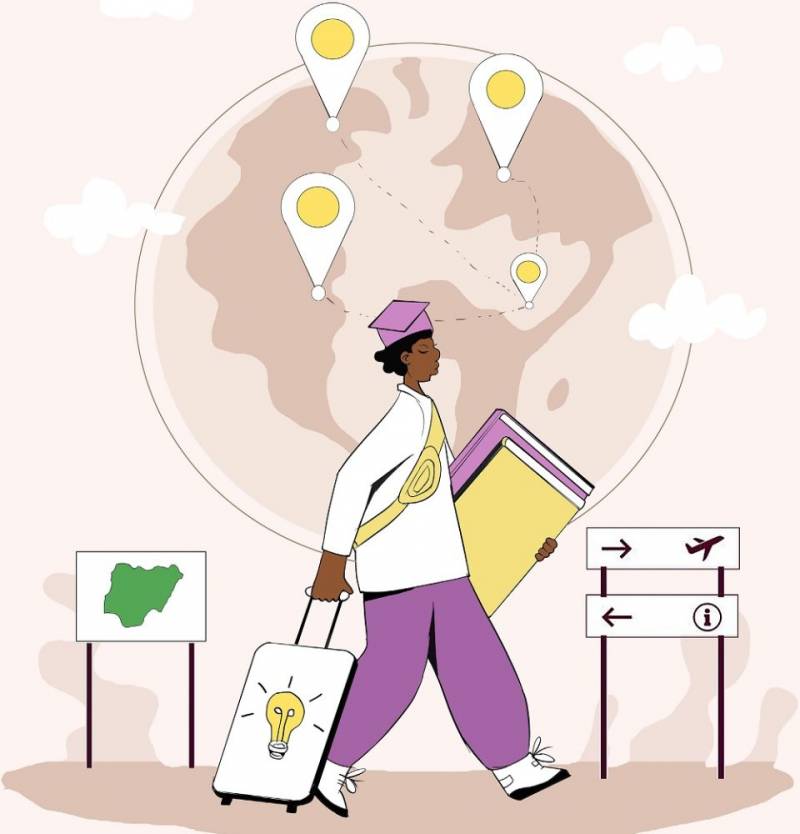As the elections draw closer each day, Nigerians count down the remaining days of this present administration. The overall state of affairs hasn’t been satisfactory—the hardship and uncertainty have clocked an all-time high recently. For most Nigerians, getting their permanent voter’s card (PVC) and making the right choice in the coming elections provide a more feasible solution to this mess. For others, taking the drastic route of emigration and seeking greener pastures have been touted as an escape from it.
Japa (Relocation), The Drastic Solution
Emigration isn’t a new concept to Nigerians. We have been moving in large numbers to all parts of the world even before gaining independence. Travelling overseas has always been a privileged thing to do worldwide, and the most populous Black Country is not different. In Nigeria, travelling abroad ranks very highly on many people’s wishlists. For most, relocation is the best thing that could happen in one’s life as a Nigerian living in Nigeria—even if it means they never get to see friends and family again. If you have never been outside Nigeria, you simply fantasise about going someday. The promise of a better life that developed countries hold ensures that this dynamic has been maintained since colonisation.
The move, however, has seen an expected surge since the #EndSARS protests in recent years. As people watched through the very gruesome series of protests that initially started as a cry for help to disband the notorious arm of the Nigerian Police Force, the Special Anti-Robbery Squad, SARS, and later morphed into a demand for good governance, Nigerians were engulfed by the feeling of hopelessness. In a democracy, the government exists to cater to its people, but there is nothing democratic about the present administration. With the brouhaha having culminated in the Lekki massacre two years ago, it became clear to young Nigerians just how powerless they are in solving some of the biggest problems in the country. Plagued by worrying insecurity, a towering unemployment rate, alarming exchange rates, the ongoing ASUU strike, the highest inflation we’ve ever experienced, and so on, it is easy to see why Nigerians are fleeing the country in large numbers.
Some would rather even stay in modern-day slavery than return home. In 2017, the ordeal of Nigerians, and other African nationals, caught in the web of a slave trade in Libya sent shock waves across the world. Reports of Africans being sold and resold for upwards of $400, with several deaths in the process came to light. According to CNN, Libya had become attractive for this modern trade in migrants and refugees because of its location as a transit point for Africans who try to reach Europe by sea. The report noted that at least 150,000 people have tried to cross the Mediterranean Sea from Libya in the last three years. About 3,000 refugees have paid the supreme price while trying to make the dangerous crossing. Foreign Affairs ministry spokesman, Tiwatope Elias-Fatiile, revealed in an official statement that 2778 Nigerians were identified in detention camps that embassy officials had been visiting. Those registered in these camps, the spokesman said, were issued with emergency travel certificates, but not all were willing to return home. Just last week, on the 5th of June, a Catholic church in Owo, Ondo State, was attacked by terrorists, killing over 20 innocent churchgoers.
This came a few weeks after a 200-level female student of the Shehu Shagari College of Education, Sokoto, Deborah Samuel Yakubu, was lynched over alleged blasphemy against Prophet Muhammad. Before that, hundreds of passengers travelling northwards on their way northwest were kidnapped in Katari, Kaduna State, while others were killed and injured by bandits who bombed an Abuja-Kaduna train. These are mere highlights of a series of barbaric acts that happen in the country on a largely consistent basis, and so Nigerians, regardless of what the potential obstacles might look like, continue to weigh up relocation as an option.
Although enough negatives are smearing Nigeria’s reputation, other countries have their own shortcomings. For instance, the United States of America has seen more than 200 mass shootings in 2022 so far. In Eastern Europe, Russia and Ukraine disrupted the world with an avoidable war, with young Nigerians studying in Ukraine serving as collateral damage. There is also the constant worry of being a minority in a foreign country and having to learn to tolerate racism and xenophobia. For some Nigerians in the diaspora, adapting to a completely different environment is challenging. Amidst the culture shock and naivety that comes with being an immigrant, some Nigerians find it hard to be social. That is met with a loneliness that can only be filled by familiar faces in a familiar environment. Despite all these challenges, Nigerians leave anyway without plans to return. But what is the long-term impact on all parties involved?
Early this year, the news of Pastor Sam Adeyemi and his wife, Nike’s — both founders of the Lagos-based popular pentecostal church, Daystar Christian Centre—relocation to Canada sent tongues wagging. Pastor Sam and his wife were in Canada on vacation in 2020 when the Federal Government declared a lockdown across the country due to the COVID-19 pandemic. Many of his church members assumed that their general overseer and his wife probably got caught up in the panic ignited by the coronavirus and the resulting lockdown. But when the lockdown was lifted and air travel allowed, the Adeyemis did not return to Nigeria.
Two years after, the couple is yet to set foot in Nigeria. Adeyemi and his wife allegedly now shuttle between Canada and the United States, where their children are schooling. Pastor Sam and Nike Adeyemi’s relocation have been rumoured to be because of the clergyman’s vocal support of the #EndSARS protest. It is no secret that certain individuals attempted to have Pastor Adeyemi, among others, convicted for active involvement in the protest.

Pastor Sam And Nike Adeyemi
This could become a trend among pentecostal pastors. Just last year, Pastor Paul Adefarasin, the senior pastor of House on the Rock Church told members of his congregation that despite having faith like a Christian should, he also has a plan B. He talked about the power of technology and how he could harness it to speak to his congregation from anywhere in the world. “Get yourself a plan B,” he had said, while advising members of his church to have a plan B or exit plan from Nigeria.
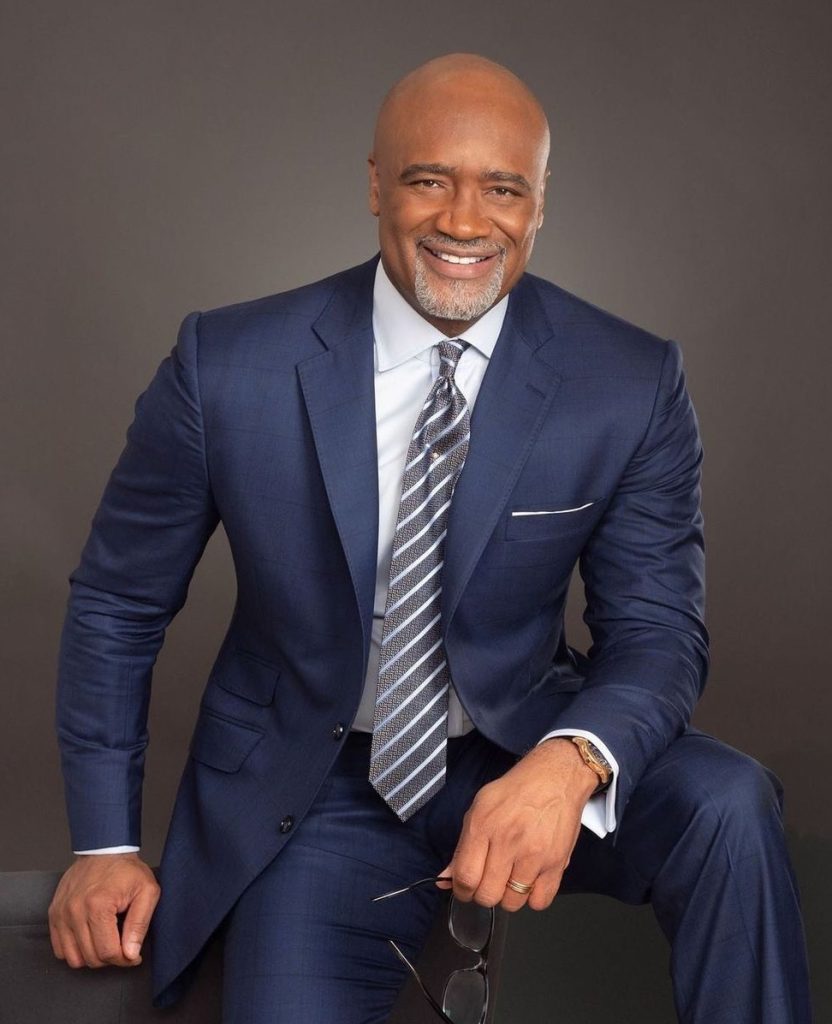
Paul Adefarasin
In the secular scene, there have been a fair number of creatives who have abandoned their career in their entirety to settle down abroad. Nollywood actresses such as Toyin Adewale, Bukky Wright, and Stella Damasus are famous examples of entertainers that have exited the spotlight for greener pastures.

Bukky Wright
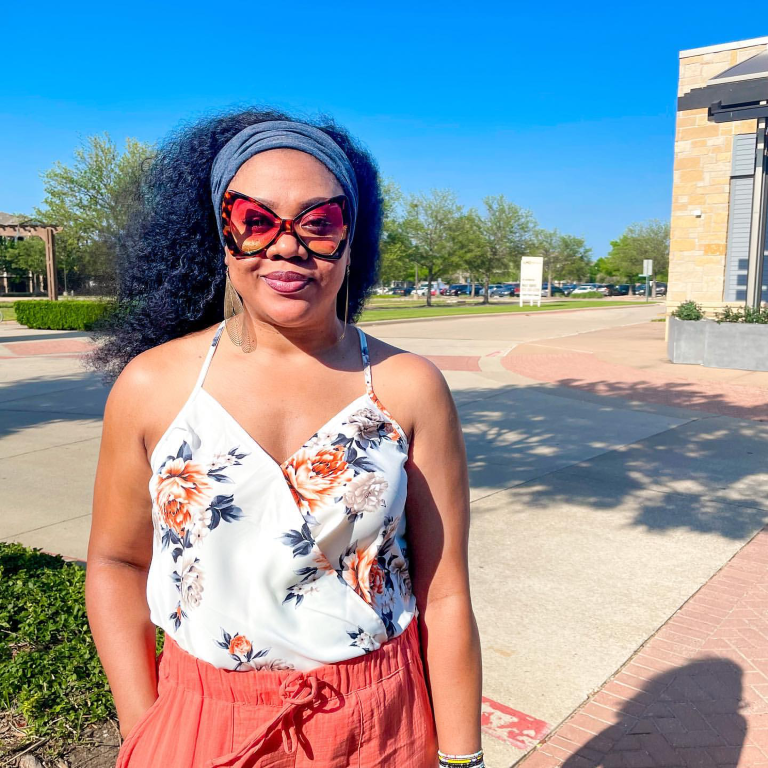
Stella Damasus
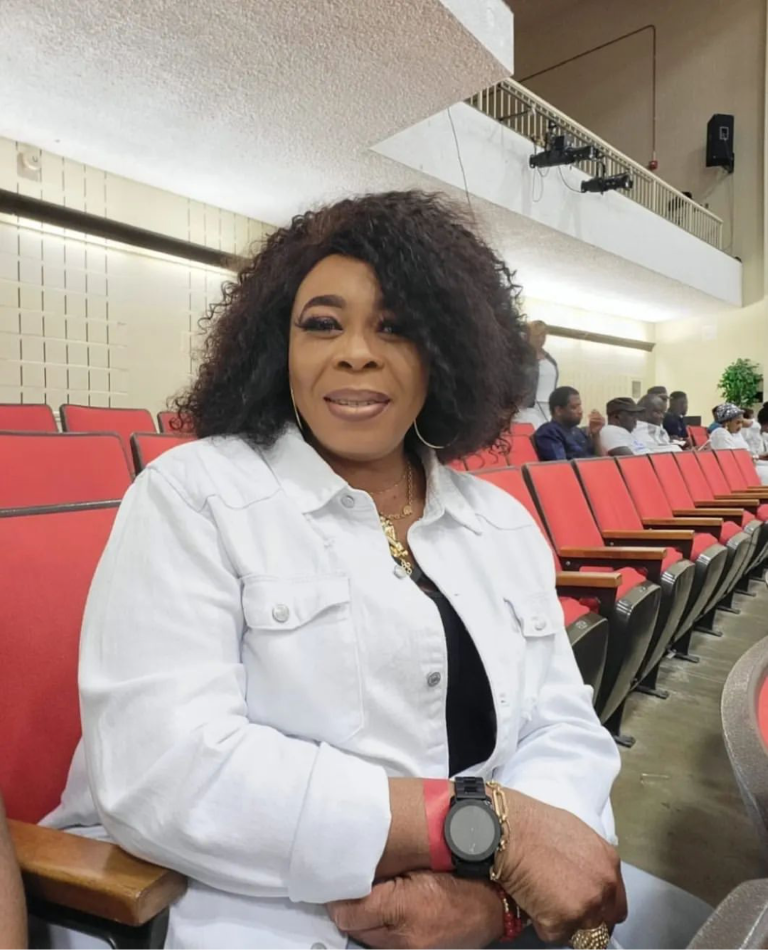
Toyin Adewale
Omoni Oboli is another Nollywood actress whose family moved to Canada. Much younger popular social media influencer, Mazi Ibe also relocated to the UK with his family last year.
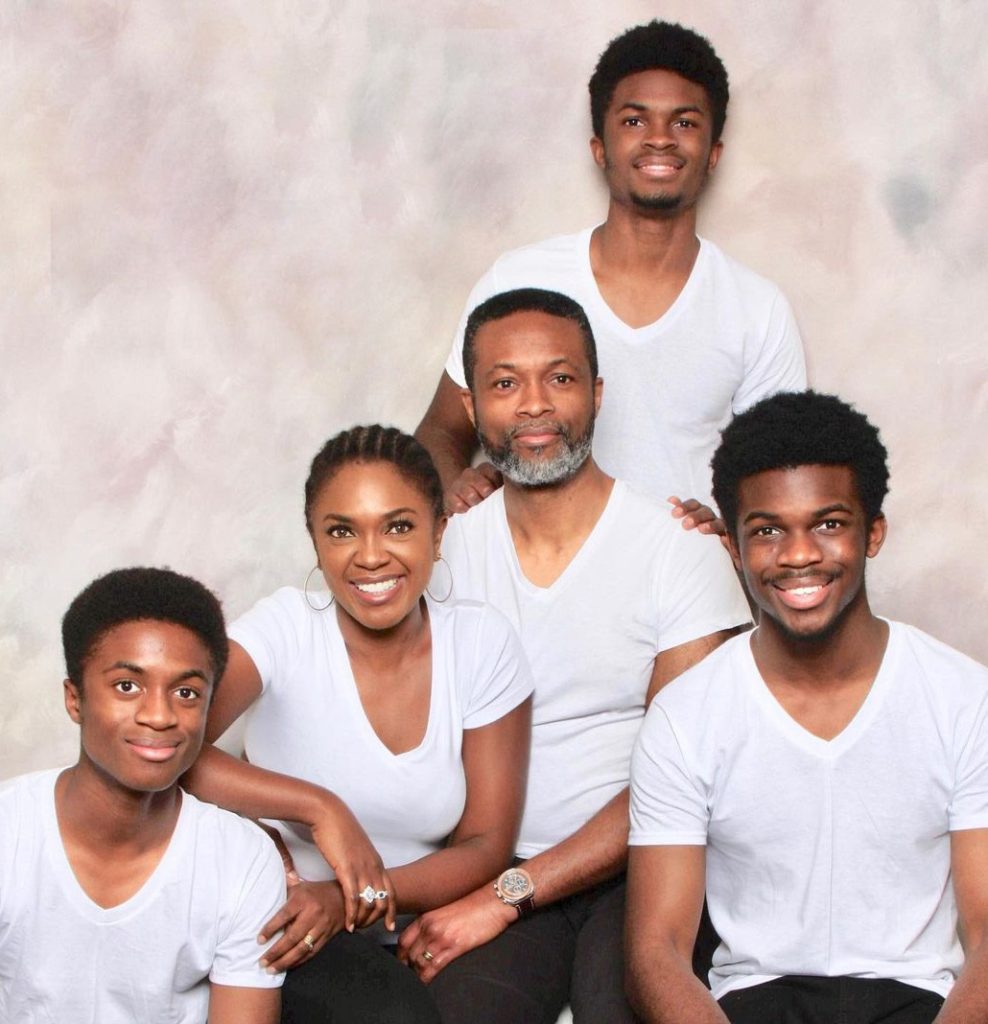
Omoni & NNamdi Oboli With Thier Sons

Mazi Ibe And His Family
For most Nigerians, the Nigerian dream comes with dual citizenship. This is why young people do whatever it takes to fulfil their relocation dreams. Since the Visa lottery days have come to an end, Nigerians have found alternatives to end up in their dream countries. The most common routes are through schools and the hospital. Even before gaining independence, Nigerians have been known to gather education abroad. The difference now is that they don’t plan to return. The health industry is faced with a similar predicament.
Brain Drain: Mass exodus of Nigerian Academia
On paper, Nigeria practices the Universal Basic Education system: nine years of basic education, three years of senior secondary school education, and four years of tertiary education. However, this first implemented module in 2009 is bisected by a plurality of problems. The wealthy who don’t want their offspring affected by some of these difficulties – ASUU strikes, cultism etc., situated them in private universities or sent them overseas for education. Those who can’t afford those privileges are restricted to hope in the bandaged system. The educational system in Nigeria is somewhat of a janky, stop-and-start education system that works when it wants, thanks to the country’s several insecurities and inadequacies. It is no surprise that restarting school from the tertiary level in a foreign country is a risk thousands of youths are willing to take because of these difficulties. But first, you must ask yourself; why, after arduous years of studying and, for a lucky few, graduating, would Nigerians spend thousands of their savings or, in some instances, loaned money to start all over?
An easy answer could be the lack of jobs. Since 2015, unemployment has risen to 33.3 per cent. According to government statistics, more than half of the workforce under 34 years old was unemployed in the fourth quarter, with 53.4 per cent of those aged 15-24 and 37.2 per cent of those aged 25-34 unemployed. Most universities and polytechnics offer over 50 courses and admit about 2 million students each academic year, graduating roughly 600,000 people, which isn’t a good ratio in and of itself. However, this also means that 1.2 million Nigerian youths will be available for work in the next two years. Unfortunately, less than half of those graduates will be able to gain their footing within the first few years after graduation.
According to World Bank estimates, around 19 million Nigerians entered the labour field in the last five years — or 300,000 per month — but only 3.5 million jobs were created during that time, implying that 80 per cent of new workers were unemployed. Most graduates are dissatisfied with the state of the Nigerian labour market, which appears to be saturated. Over the last nearly two decades, the situation has steadily deteriorated. The report that the Nigerian Youth Employment Action Plan, 2021-24 of the Federal Ministry of Youth and Sports Development, published in August 2021, confirms that unemployment rates are increasing. According to the report, “As of 2020 (Q2), youth unemployment (15-34 years old) stood at 35 per cent. A further 28 per cent of young people in the labour force were considered underemployed (working 20-39 hours a week), and 37 per cent were working full time (40 or more hours per week).”
COVID-19 also played a role in setting education back. Schools that couldn’t participate virtually suffered from the effects. Some of these effects were that; the pandemic negatively impacted education, causing poor school enrollment, inequality in education, poor achievement, poor school health and challenges in school assessment and transition.
The increasingly difficult opportunity for graduates to positively contribute to the growth of their economy has been one of the many reasons why graduates wouldn’t mind packing their bags and suitcase for other foreign countries. Countries where they can actively improve as individuals while similarly contributing to the growing community.
Graduates aren’t bound by education’s prisms, and if they possess the required funds to relocate, they can. But what about undergraduates who are seemingly in an academic structure but would jump at any chance to leave the country should it arise? Could it be that they don’t like the odds stacked against them, or perhaps they are in dire need of a system that works and works well? Universal Basic Education (UBE) was set in motion to replace the previous academic structure, the 6-3-3-4 system. The UBE delegates that the education recipient spend four years in the university. It’s common knowledge. The standard duration of any tertiary course is four years (exempting Law, Medicine and specific other courses.) But that’s not the case in most state and federal schools in Nigeria, under the Academic Staff Union of Universities, widely known as ASUU. From the body’s formation back in 1988 till date, it has embarked on 16 nationwide strikes. Which were for several reasons that include but aren’t limited to; poor university funding and disparity in salary. These strikes, which are now considered a yearly event, cripple academic activities and set the academic calendar of undergrad students back by months. As of the time of this article, this body is on a three-month strike going as far back as March 2022. Students have been forced to wait out the strike, which is expected to end on the 8th of August. When this happens, they will be forcefed months of work in weeks and would have to sit for exams not long after. Yet, we wonder why out of 2 million students admitted, only 600,000 graduate. Courses that usually should take four or five years to conclude are extended for these reasons. Whereas in other countries, the system put in place doesn’t allow for such things to happen. Asides from that, there is a good level of compassion between the union and the state to ensure that when two elephants fight, the grass doesn’t suffer.
Some graduates who finish their programs here and consider furthering their degree to PhD or doctorate level aren’t also safe from the academic hullabaloo because they still stomach the same issues as undergrads. To avoid that, they have to enrol on programs that would grant them a student visa and then, they school and work to make up a little cash for themselves along the line. Having reached the final tier of educational excellence, some then use the opportunity to settle in the country in the hopes of becoming permanent citizens and planting their roots in a system that works.
Continuous Emigration of medical practitioners
Another sector in the country that got ravaged by the cold hands of Emigration is healthcare. Every year, there are fewer medical doctors in Nigeria. According to the Nigerian Medical Association, the primary cause for the decline in doctors in Nigeria is the migration of Nigerian doctors abroad. The Medical and Dental Consultants Association of Nigeria (MDCAN) corroborated it when it reported that more than 100 of its members have left the country in the past 24 months. At least 2,000 medical doctors leave Nigeria yearly, and no fewer than 5,407 Nigerian trained doctors are currently working with the British National Health Service in the United Kingdom. The president of the Nigerian medical association, Dr. Francis Faduyile, noted that a high rate of insecurity, unemployment, low remuneration, bad roads, and a flawed healthcare system are some of the reasons why doctors are leaving the country in search of greener pastures. He noted that 75,000 Nigerian doctors were registered with the Nigerian Medical Association (NMA), but over 33,000 have left the country. Can you blame them? One doesn’t even need data to show that doctors in America and Europe are paid higher than their counterparts in Africa. The United States of America and the United Kingdom are the two most prevalent destinations for Nigerian medical doctors to seek job opportunities. Others include Canada, Dubai, Saudi Arabia, Australia, and Qatar.
As far as meeting Sustainable Development Goals (SDGs) 3 regarding “Good Health and Well-being” for the healthcare sector, things are not looking too good. The country is well behind on meeting a target requirement of an adequate number of doctors, projected to achieve the SDG. The World Health Organisation (WHO) puts the doctor-patient ratio at 1:600 standard. However, Nigeria’s doctors to patients ratio of 4:10,000 fall below the global recommendation. As aforementioned, this has led to a medical brain drain, thereby leaving several people without medical consultation from doctors in Nigeria.
In Finality
Although it is clear to see how much better the general living conditions are in developed countries, and the sentiment that most Nigerians have about them is fair and valid, does it present the perfect solution? Between the mass shootings in North America, and the war in Eastern Europe mirroring the insecurity challenges we have at home, and the feeling of loneliness and despair that some Nigerians in the diaspora are conditioned to experience, there’s no questioning how much of a sacrifice goes into these rampant relocations. On the one hand, searching for greener pastures, even with the uncertainties involved, could be likened to a case of the devil you know being better than an angel you don’t know.
On the other hand, several factors are responsible for young people leaving everything behind in the search for a better life, and we can go on and on about how the country isn’t serving us. But change doesn’t just happen without a propeller intent on implementing strategies that work. We have a long way to go as a country; the potentials are enormous across every industry and sector. However, our country risks losing our best resources—people—to already developed countries if we don’t wake up and smell the coffee.
